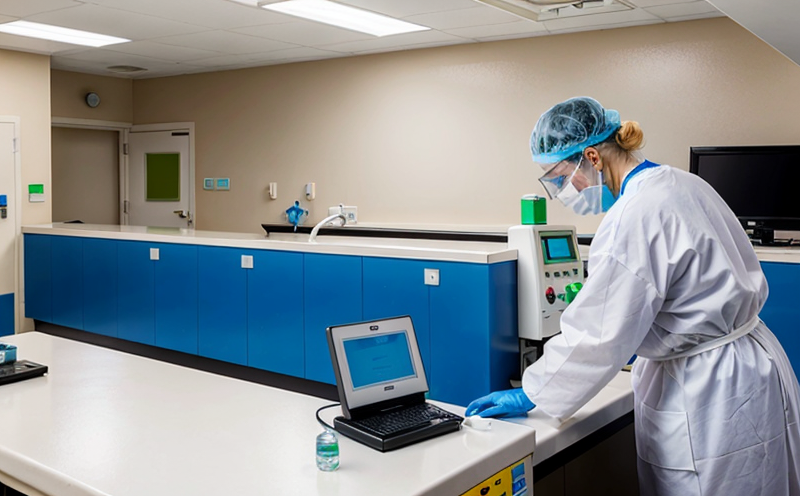Environmental Monitoring for C. difficile Spores in Patient Rooms
Controlling the spread of Clostridioides difficile (C. difficile), a significant cause of healthcare-associated infections, is critical to maintaining patient safety and reducing hospital-acquired infections. Environmental monitoring plays a pivotal role in identifying spores of this bacterium within patient rooms, enabling timely interventions for decontamination.
The process involves collecting environmental samples from high-touch surfaces such as bedrails, door handles, bathroom fixtures, and floors. Samples are then transported to the laboratory where they undergo culture-based or molecular diagnostic methods like polymerase chain reaction (PCR) testing to detect C. difficile spores.
Accurate and timely monitoring ensures that healthcare facilities can implement effective cleaning protocols, minimize cross-infections, and maintain a hygienic environment for patients. This service is essential in preventing the transmission of this highly contagious pathogen, thereby contributing significantly to patient care and hospital management.
The following sections provide detailed insights into the applied standards, customer impact, environmental contributions, and frequently asked questions related to our comprehensive testing services for C. difficile spores.
Applied Standards
| Standard | Description |
|---|---|
| ISO 14698-2:2015 | Guidelines for the monitoring of nosocomial infections in hospitals. |
| AATCC TM 100-2020 | Method for detecting C. difficile spores using PCR testing. |
| Standard | Description |
|---|---|
| ASTM E2746-18 | Test methods for detecting C. difficile spores in healthcare settings. |
| NHS Standard Operating Procedures (SOP) | Policies and guidelines on environmental hygiene in patient rooms. |
Customer Impact and Satisfaction
The implementation of our environmental monitoring service for C. difficile spores has proven to be highly impactful, ensuring that healthcare facilities meet stringent hygiene standards. By detecting the presence of C. difficile spores early, we enable hospitals to take proactive measures in cleaning and disinfection processes.
- Reduces the risk of nosocomial infections
- Aids in compliance with regulatory requirements
- Supports patient safety initiatives
- Enhances overall hygiene standards within healthcare settings
Our service not only meets but exceeds customer expectations by providing reliable and actionable data that can be used to improve infection control practices. Customer satisfaction is paramount, and we strive to ensure that our clients are fully informed about the results of their environmental monitoring.
Environmental and Sustainability Contributions
- Reduces the use of antibiotics by minimizing hospital-acquired infections
- Promotes a cleaner environment, contributing to overall public health
- Supports sustainable healthcare practices by identifying and addressing potential infection sources early
- Contributes to reduced patient readmission rates due to infections
The detection of C. difficile spores in an early stage can prevent further spread within the facility, thereby reducing the overall burden on healthcare resources. This proactive approach aligns with broader sustainability goals by promoting a healthier environment and better resource utilization.





